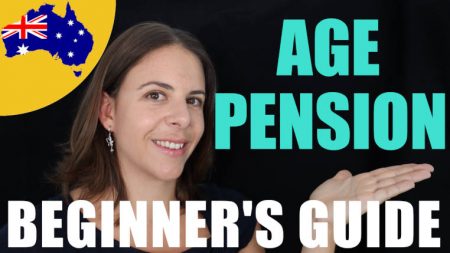
7 Secrets To A Happy Retirement: Surprising Research Findings
- RetireOn
- Updated: March 13, 2024
What Makes A Happy Retirement?
A happy retirement is everyone’s goal! Enjoying time with loved ones and travelling the world – this is perhaps how most people picture their sunset years. Yes, that is something very important to make your retirement happy. But, is that all?
What else do we need for a happy retirement?
The book Enjoying Retirement: An Australian handbook of ideas, strategies, and resources written by Michael Longhurst helped me answer the question. The book discussed the findings from the research that had given the same set of questions to two different groups of Australian retirees.
The 100 people in one group really liked their retirements, while the other group of 100 people found retirement to be stressful and boring. Isn’t that interesting to find out why the differences occurred?
In this article, you will find the 7 most important findings as well as tips on how to integrate them into your retirement planning. You can either watch the video below or continue to read this article if you prefer reading.
Secret #1: Engaging in Purposeful Activities for More Than Five Hours a Week
Well, most people go through a stage of honeymoon at the beginning of retirement. They travel; they start the activities they always wanted because they have all this free time now.
This honeymoon stage does not go on very long for everyone. Unfortunately, many retirees get bored one or two years after retirement.
One way to avoid this is to have a purposeful activity. What is a purposeful activity? It’s something meaningful, something more engaging than just staying active. Here are some examples of purposeful activities described by the Australian Government.
Do you have an idea of what this could be for you?
Secret #2: Retire on Your Own Term
There is an increasing number of people being forced into retirement by companies’ restructure or by health issues. Those people often carry cold feelings towards their colleagues who can stay on. They may get angry or judge themselves in a harsh way.
So what would you do if you were in that situation?
Well, it’s important that you deal with those feelings. If you don’t, it may result in some emotional health problems. I had a look around and found the following websites that can help people cope with such problems:
- Beyond Blue works to address issues associated with depression, anxiety and related substance misuse disorders in Australia.
- Lifeline Australia provides Australians with access to 24/7 crisis support and suicide prevention services.
- Mensline Australia provides a free, confidential and anonymous, 24-hour professional telephone counselling service for men who need emotional support or in crisis.
Secret #3: Financial Independence Is Essential For A Happy Retirement
Another happy retirement secret is to be financially independent. Well, you may not call this a secret as it is easy to guess. However, there are more insights into financial independence for retirement, discussed in the book.
One interesting point made in the book is that people on government pensions as the only income source may experience high-level depression, anxiety, and stress. They are also likely to have limited social activities due to the lack of money.
For example, they simply cannot afford to buy a couple of beers after bowls or golf. Obviously, this is not what people dream about in retirement.
Another notable point discussed in the book is that the retirees on the pension while still paying off mortgages were usually in a precarious financial position. I can imagine it. Bringing debt into retirement is something people must avoid.
Secret #4: Retire at 55 or Younger to Be Happy in Retirement
This doesn’t come as a surprise for me, but the reasons behind it actually make me think twice. The main reason people indicated why they wanted to retire early is that they’ve seen their parents retire at 65 and shortly die after. They don’t want this to be their case.
Another reason is to have time to engage in the activities they like. Or, they want to build their own businesses while they are still young. Doesn’t it make sense?
Well, it sounds nice, but how can you actually do that if you still have a mortgage to pay back or if you’re supporting your children? One practical way to make it happen is to think about semi-retirement.
You can start building skills to create extra income in retirement. You then make the transition to retirement longer while working part-time until you become financially independent.
We offer a number of ways to generate extra income in retirement. It is worth learning the skills and tips discussed in the learning section, and then trying them out.
Secret #5: Having Someone for Emotional Support
When you retire, your current work colleagues may disappear literally overnight. Some people find the social gap very difficult.
To cope with such a situation, I’d suggest joining a social network. There are online societies where you can find social groups. Based on your interest (eg, do you like knitting, reading, or biking?), you could find new ‘colleagues’ who can share your interest.
Secret #6: Proactively Maintaining Your Health
In short, this secret means you become ‘active’. Follow a healthy diet. Go to annual health checkups. Exercising half an hour per day is enough to maintain your health.
What if you’re on a budget and can’t just sign up for a gym?
There are quite a number of free events around in Australia, which are organised by the city councils. For example, the Brisbane City Council’s program (called active parks) offers pilates, yoga, dancing or aqua classes.
Likewise, you can find interesting programs for other regions in Australia from the links below:










